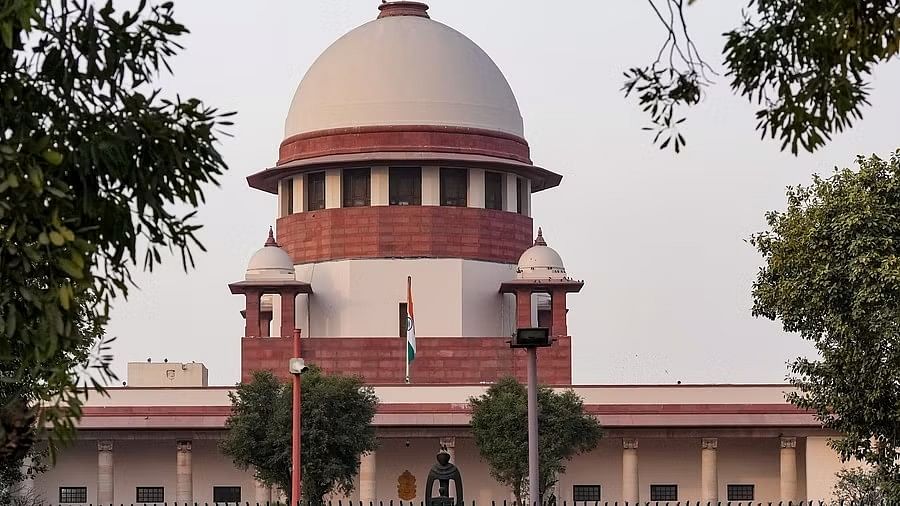
The Supreme Court of India.
Credit: PTI File Photo
New Delhi: The Supreme Court has directed the National Legal Services Authority (NALSA) and others to facilitate and assist any woman who has suffered sexual harassment at the workplace, saying access to justice is as important as rendering of justice.
Though the Union Ministry of Women and Child Development stated it has launched a revamped version of SHe-Box on August 29, 2024, a bench of Justices B V Nagarathna and N Kotiswar Singh noted certain directions are required to be issued so that this facility is made available to women who suffered sexual harassment to effectively make her complaint.
The Centre led by Additional Solicitor General Aishwarya Bhati said SHeBox is a major step towards women empowerment by ensuring them a safer workplace and an easy access to redressal mechanism. This platform would provide a secure and confidential way for women to report instances of harassment and fostering a culture of accountability, she said.
In order to prevent and also take cognisance of sexual harassment, the Government of India has constituted/devised an electronic (SHe-Box Portal) Portal to provide one-stop access to every woman irrespective of her work status, whether in an organized or unorganized, private or public sector and to facilitate the registration of complaint relating to sexual harassment, she said.
Referring to Section 9 of the Sexual Harassment of Women at Workplace (Prevention, Prohibition, and Redressal) Act, 2013, amicus curiae advocate Padma Priya submitted that it may not be possible for a lady who is a victim of sexual harassment to directly access the SHe-Box.
The court then issued directions to legal services authority while stressing that it is the obligation and duty of all concerned under the the Sexual Harassment of Women at Workplace (Prevention, Prohibition, and Redressal) Act, 2013 and particularly the employers whether in the governmental, public or private sector to ensure that the Internal Complaints Committees are constituted forthwith wherever they have not been constituted.
In its order on October 22, the court said the Ministry of Labour of the Union of India as well as the Departments of Labour in the respective State Governments in consultation with the Department of Women and Child Development both at the Union as well as at the state level should take steps to ensure that the provisions of the Act are effectively implemented by issuing directions for the constitution of the Internal Complaints Committees where they have not yet been constituted and also for ensuring the said Committees work in accordance with law in letter and spirit of the Act and train the employees in the form of giving training and creating awareness about the rights of the women in workplaces.
"National Legal Services Authority through the Member Secretary may also issue suitable directions to all the State Legal Services Authorities to ensure compliance of these directions and to seek reports of compliances. In view of the directions, the concerned State Legal Services Authorities are to comply with the directions to be issued by National Legal Services Authority in the matter of implementation of the directions and in the matter of compliance to be made on the implementation of the provisions of the Act," the bench said.
It posted the matter for further hearing on December 3.
The court was considering compliance of its judgment of May 12, 2023 on a plea by Aureliano Fernandes, a former head of department at Goa University, against the Bombay High Court order, in connection with sexual harassment allegations against him.
On May 12, 2023, the Supreme Court had directed the Centre, all state government, and Union Territories to verify in a time bound exercise whether all the concerned ministries, departments, government organizations, authorities, public sector undertakings, institutions, bodies, etc have constituted sexual harassment committees.
The court said it is disquieting to note that there are serious lapses in the enforcement of the 2013 Prevention of Sexual Harassment (PoSH) Act even after such a long passage of time.
